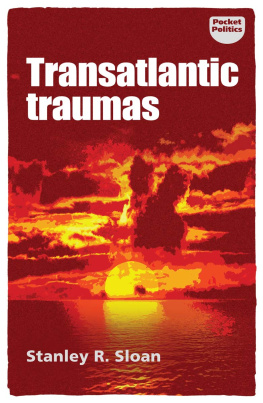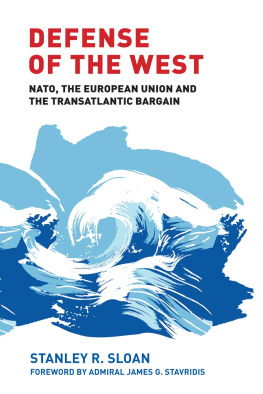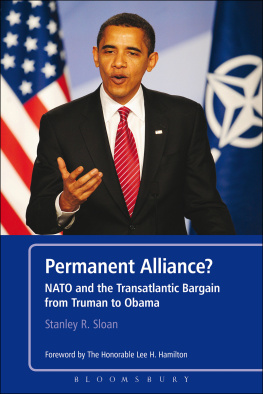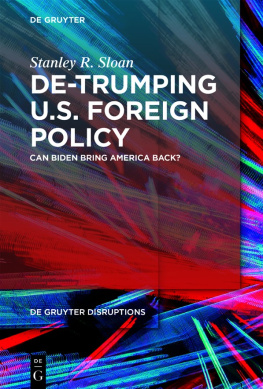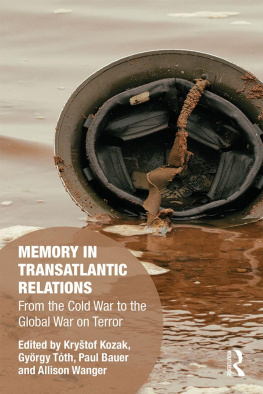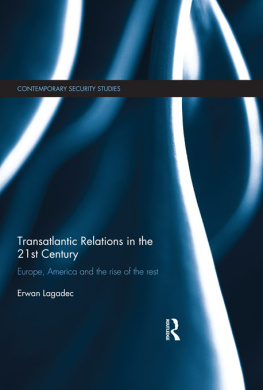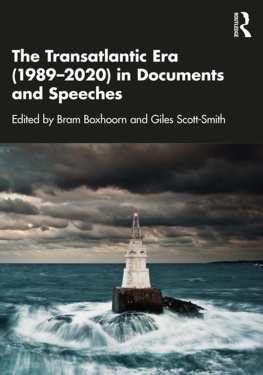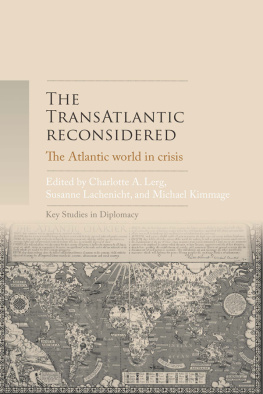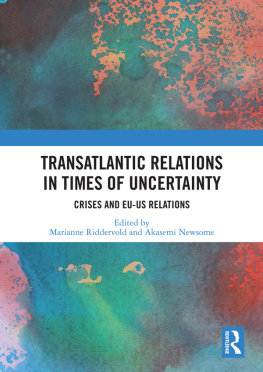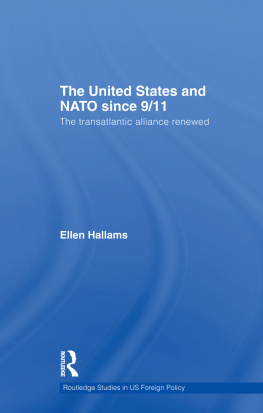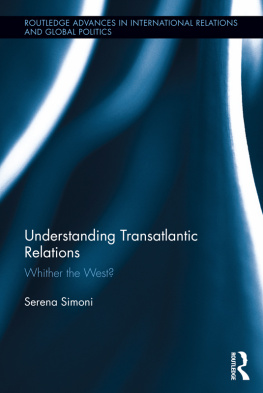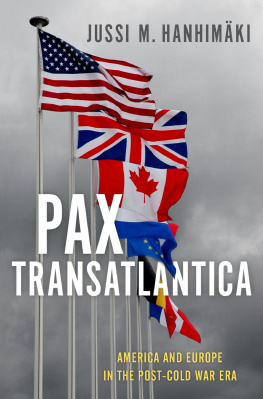Transatlantic traumas
POCKET POLITICS
SERIES EDITOR: BILL JONES
Pocket politics presents short, pithy summaries of complex topics on socio-political issues both in Britain and overseas. Academically sound, accessible and aimed at the interested general reader, the series will address a subject range including political ideas, economics, society, the machinery of government and international issues. Unusually, perhaps, authors are encouraged, should they choose, to offer their own conclusions rather than strive for mere academic objectivity. The series will provide stimulating intellectual access to the problems of the modern world in a user-friendly format.
Previously published
The Trump revolt Edward Ashbee
Lobbying: An appraisal Wyn Grant
Power in modern Russia: Strategy and mobilisation Andrew Monaghan
Reform of the House of Lords Philip Norton
Government by referendum Matt Qvortrup
Transatlantic traumas
Has illiberalism brought the West to the brink of collapse?
Stanley R. Sloan
Manchester University Press
Copyright Stanley R. Sloan 2018
The right of Stanley R. Sloan to be identified as the author of this work has been asserted by him in accordance with the Copyright, Designs and Patents Act 1988.
Published by Manchester University Press
Altrincham Street, Manchester M1 7JA
www.manchesteruniversitypress.co.uk
British Library Cataloguing-in-Publication Data
A catalogue record for this book is available from the British Library
ISBN 978 1 5261 2871 3 paperback
First published 2018
The publisher has no responsibility for the persistence or accuracy of URLs for any external or third-party internet websites referred to in this book, and does not guarantee that any content on such websites is, or will remain, accurate or appropriate.
Typeset by
Servis Filmsetting Ltd, Stockport, Cheshire
Contents
I am endlessly thankful for my association with Middlebury College and its marvelous students for the inspirations and challenges they have provided over the past fourteen years of teaching in the Winter Term. This project owes much to three former students in my Euro-Atlantic Relations course Rowen Price, Travis Sanderson and Grace Vedock who volunteered to serve as research assistants and became full-fledged collaborators. I benefited as well from dialogues with Lawrence Chalmer, Jordan Becker, Thomas Seifert, Tom Timberman and my book club colleagues, who have added wise counsel on many issues addressed in this volume. It has been a pleasure working with Bill Jones, the editor of this series, and with Tony Mason and the rest of the team at Manchester University Press. Finally, my loving wife Monika once again provided not only eagle-eyed proofreading but also great patience with an author frequently lost in thought. As always, I am solely responsible for any errors of omission or commission.
Stanley R. Sloan, Lake Groton, Vermont
The West of which we speak is defined by the values of liberal democracy, individual freedom, human rights, tolerance and equality under the rule of law.
T he most difficult part of solving a problem often is defining it. Only in the past few years has it become clear that what we call the West has become vulnerable to a potent combination of external threats and internal challenges. Perhaps the end of the Cold War encouraged some citizens of the West to relax their guard, to take the future well-being of our political, economic and security systems for granted. Now, the problem for Western countries is dealing with a confluence of forces that challenge the idea of the West, its application in Western democracies and the international institutions founded on liberal internationalist principles.
The West of which we speak is defined by the values of liberal democracy, individual freedom, human rights, tolerance and equality under the rule of law. The West is an idea, or rather a basket of ideas. It is not defined by distinctions of race, culture, religion, language, nationalism, wealth or other traits that divide rather than unite human beings. It is not the West that President Trump has referred to as constituting the bonds of culture, faith and tradition that make us who we are. Trumps formulation threatens to close the door of the West to those of different cultures, faiths and traditions who, while differing in many ways, nonetheless accept and practice Western values.
This concept of the West has been shaped largely since the end of World War II. But the history is both much deeper and fraught with the challenges of change. This West traces its roots to the birthplace of democracy in Greece some 8,000 years ago. The period of Enlightenment a movement among European intellectuals some 200 years ago advanced the concept dramatically with its advocacy of relying on reason and rationalism rather than tradition, tribalism and religion to govern human relations. It celebrated science and the promotion of religious tolerance and governments based on constitutionalism with separation of church and state. This progress toward what we now call liberal internationalism nonetheless grew alongside the spread of slavery in Western states. Western governments initially used the concept to oppose the barbaric East, or anything that was not European.
To understand the idea of the West today, its important to recall that, even in recent historical periods, the West has not always represented the best that people can be, reminding ourselves that colonialism and robber barons were still features of Western civilization not many decades ago. Only after we acknowledge that history can we credibly argue that the West nonetheless developed some of the most powerful paradigms for human decency individual liberty, human rights, and so on and that the West can be defined as synonymous with these values. However, the struggle against ideas that run counter to these Western values continues, as demonstrated by recent political developments on both sides of the Atlantic. As one observer has noted, The source of the Wests evolutionary power has been its openness, its equality of rights, and its social trust. All of those attributes have been called into question by the recent resurgence of illiberalism.
This, of course, is not the first time that such a threat has appeared. As author Thomas Ricks has recently observed, in the 1930s The end of the Western way of life, and especially the death of liberal democracy, was a common theme in cultural life. And we all know what came next.
The transatlantic traumas of 201617 have once again put the West in jeopardy. The combination of external threats from Russia, disruptive radical Islamist terror and internal weaknesses in Western social, economic and political systems has formed a perfect storm. That storm endangers not only the security of Western democracies but also the values that have shaped the West since the end of World War II, and the institutions that operationalize them.
Then-US Secretary of State Dean Acheson told members of the Senate Foreign Relations Committee that the North Atlantic Treaty to which they were being asked to give their advice and consent is far more than a defensive arrangement. It is an affirmation of the moral and spiritual values which we hold in common.

